Who needs boxed rice mixes when you can easily whip up a copycat recipe of Texas Roadhouse seasoned rice?
With this simple recipe, you can take rice to the next level.
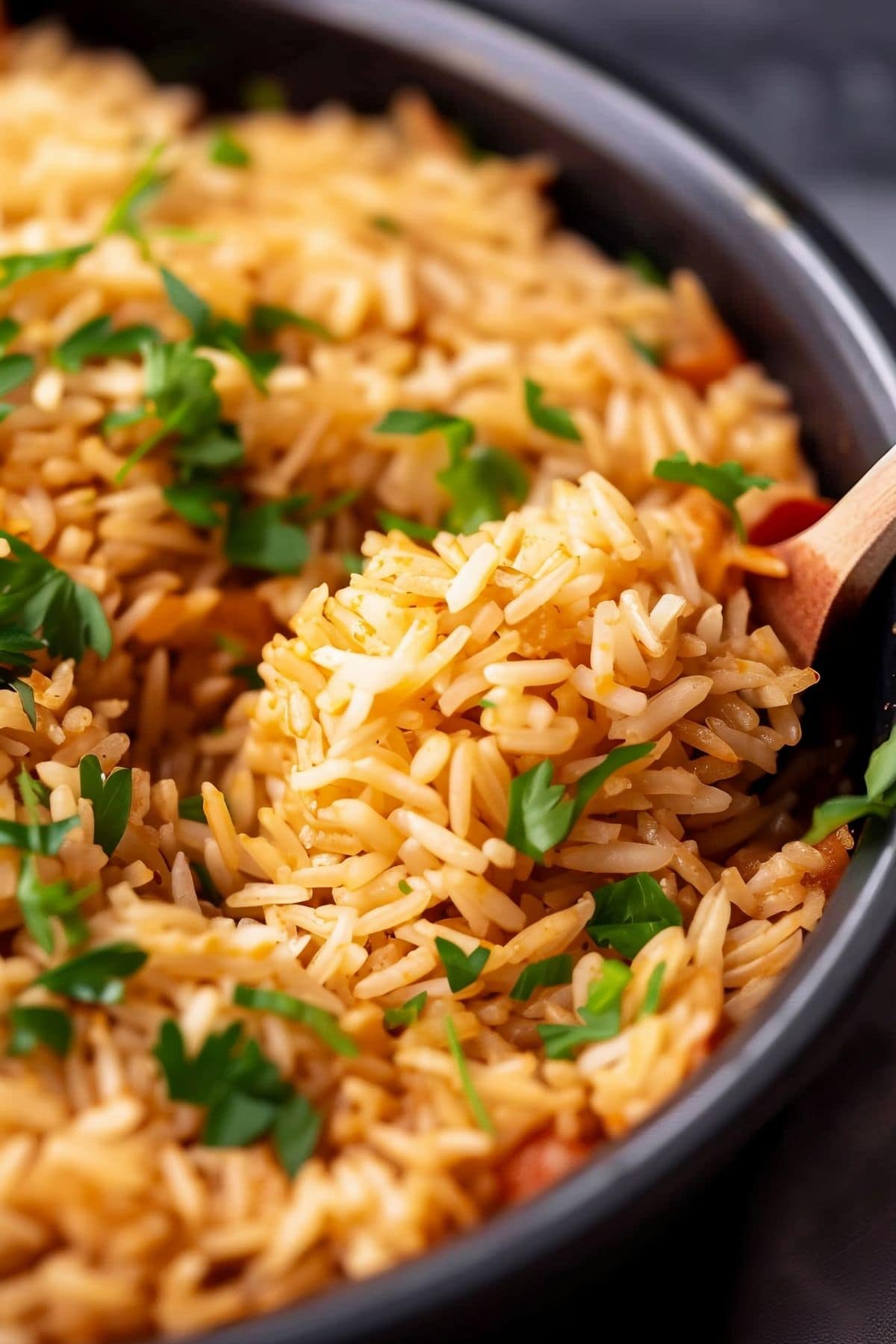
Sure, there’s nothing wrong with a classic bowl of steamed white rice, but why settle for that, if you can make a stunning rice pilaf instead?
Toasted in butter, cooked in broth, and seasoned with aromatics, herbs, and spices, this rice pilaf is mega-loaded with flavor!
It’s a one-pot dish, too, so there’s no need to worry about cleanup.
If you’re getting bored with the usual white rice, switch things up with this drool-worthy seasoned rice. It’s so good, Texas Roadhouse had better watch out!
Texas Roadhouse Seasoned Rice
Rice pilaf is a rice-based dish that calls for browning uncooked rice in butter to give it a nutty flavor and a firmer consistency.
It’s then cooked in broth – not water – and seasoned with herbs and spices for more flavor.
The result is an insanely tasty dish you can eat it on its own!
The best part is, it’s so easy to make. Sure, it’s not as simple as boiling rice in water, but considering how mind-blowingly delicious it is, it’s worth the effort.
Plus, the ingredients are so basic, you most likely have them on hand, anyway.
You can even customize rice pilaf to your fancy. There’s no need to stick to the recipe. Think of it as a blank canvas that you’re free to dress up as you please.
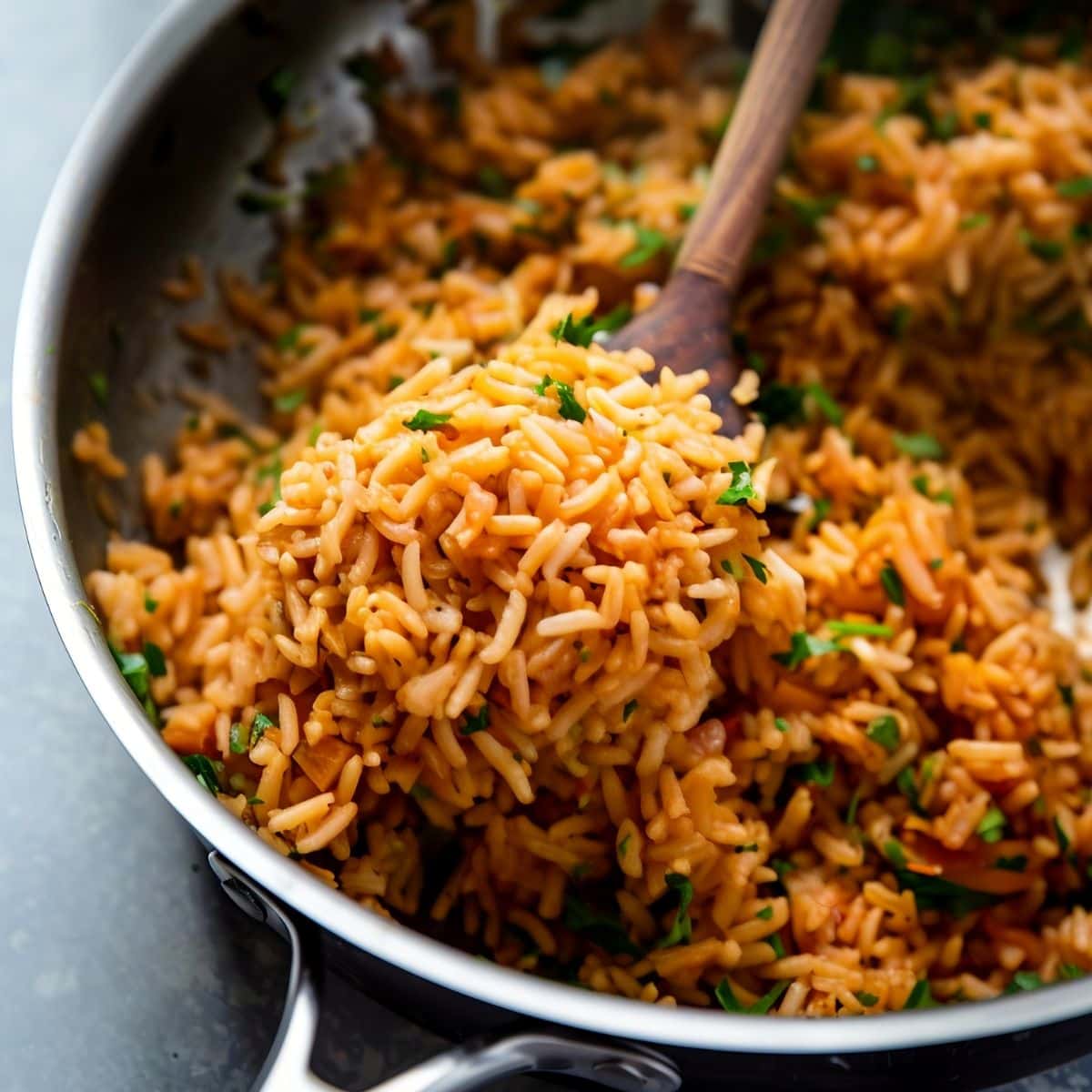
Ingredients
- Salted Butter. Toasting uncooked rice is the secret to the success of every rice pilaf. It gives the rice a nutty flavor and a firmer consistency.
- Rice. The star of the dish. You’ll use white, long-grain rice for this recipe. You can use brown rice for a healthier version, too.
- Onion. Apart from flavor, it also gives rice pilaf such a heavenly aroma. You can also use shallots for a milder flavor.
- Parsley. For a pop of color.
- Paprika. For a warm, earthy flavor.
- Garlic Powder. Freshly minced garlic works too!
- Cayenne Pepper. For heat. You can use as much or as little as desired.
- Soy Sauce. For a salty, umami flavor.
- Chicken Stock/Broth. The liquid used to cook the rice in. You can also use bouillon cubes dissolved in water.
- Salt And Pepper. Don’t forget to season the rice post-cooking. It really makes a difference!
Tips for the Best Rice
- Rinse the rice well. Place rice in a fine-mesh sieve and run it under cool water until the water runs clear. Rice is very starchy, so if you skip this step, the grains will stick together and become mushy once cooked.
- Use a non-stick pan to avoid the rice from sticking to the bottom.
- Toast the rice in butter to give it a nutty flavor and to avoid the grains from clumping.
- If the broth evaporates before the rice is done, just add more and continue cooking.
- If the rice is still wet, leave it uncovered for 5 to 10 minutes, or until it dries out.
- Fluff the rice with a fork, not a spoon or spatula. The fork’s tines help keep the grains apart.
- Season the rice with your choice of herbs and seasonings. Dried thyme, dill, basil, and oregano because all taste great with rice pilaf.
- Rice pilaf is a fantastic side dish that goes well with any meat entree. It’s great with fried chicken, pork chops, steak, buttered shrimp, steamed fish – you name it!
- You can also use it as a base for rice bowls. Top rice pilaf with pulled pork and you’ve got yourself a hearty meal.
- You can add more vegetables to pilaf for flavor and nutrition, such as carrots, mushrooms, and celery. Nuts and raisins add a nice flavor and texture as well.
- Store leftover rice pilaf in an airtight container and refrigerate for up to 4 days. Make sure it’s completely cooled to room temperature before storing.
- Freeze the rice for a longer shelf-life. Place it in an airtight container and freeze for up to 1 month. Thaw it in the fridge overnight and reheat it on the stove or microwave.
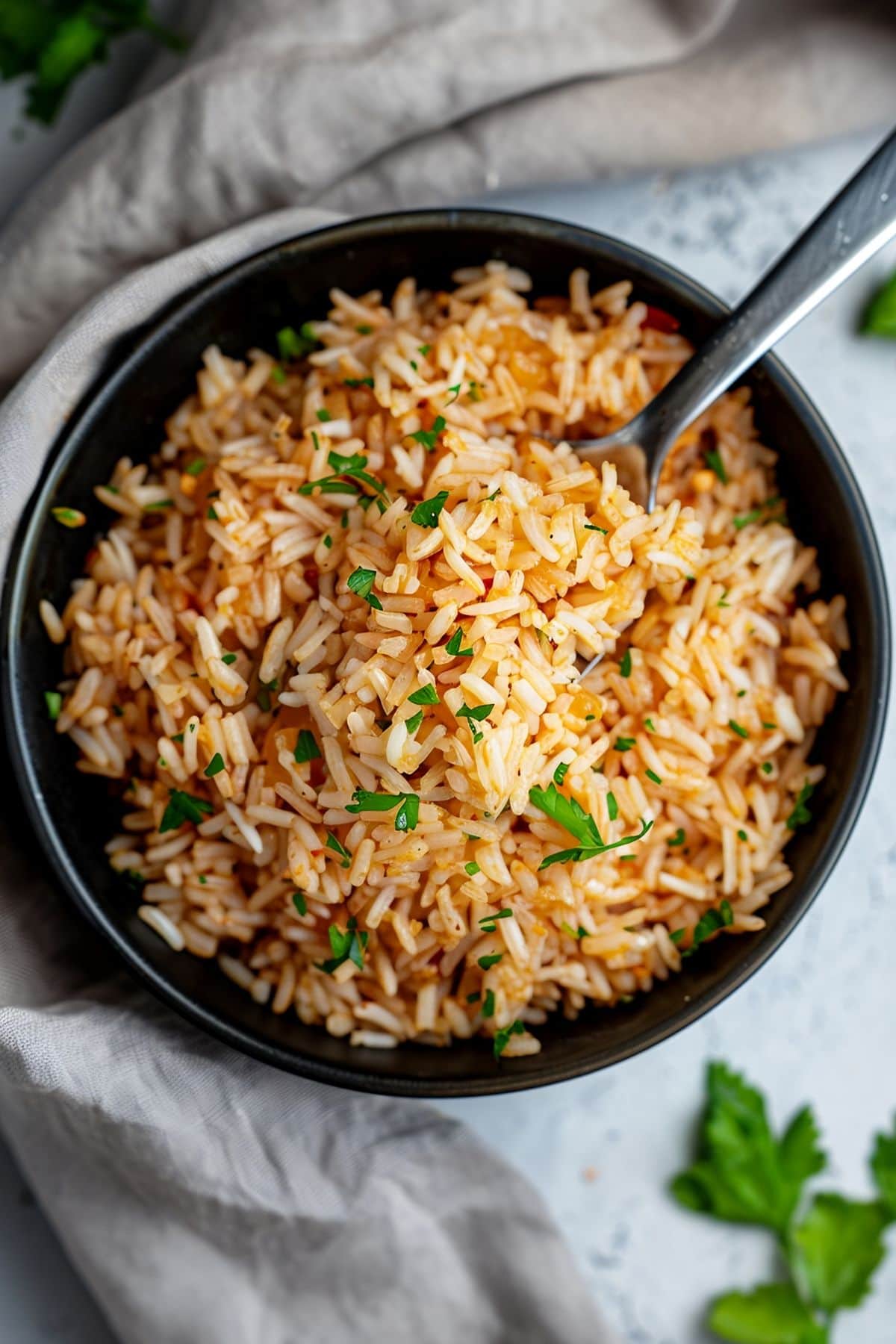
What Kind of Rice Is Best?
I personally prefer using long-grain rice such as basmati because it has a wonderful nuttiness to it. Jasmine rice has a nice flavor, too, although it’s a bit pricier.
Brown rice works great for this recipe, too. It adds a nice chewiness to the dish. Wild rice, on the other hand, adds color and dimension.
Medium and short-grain rice get clumpy once cooked, so I don’t recommend it. If you don’t mind sticky rice pilaf, though, go ahead!
The bottom line is, you can use any kind of rice for this recipe as long as you adjust the length of cooking according to package instructions.
Is This a Rice Pilaf? How is it Different From Rice?
Yes, Texas Roadhouse seasoned rice is a rice pilaf.
Rice pilaf is a rice-based dish that requires browning uncooked rice in butter and cooking it in stock or broth. Regular rice is cooked by boiling or steaming with water.

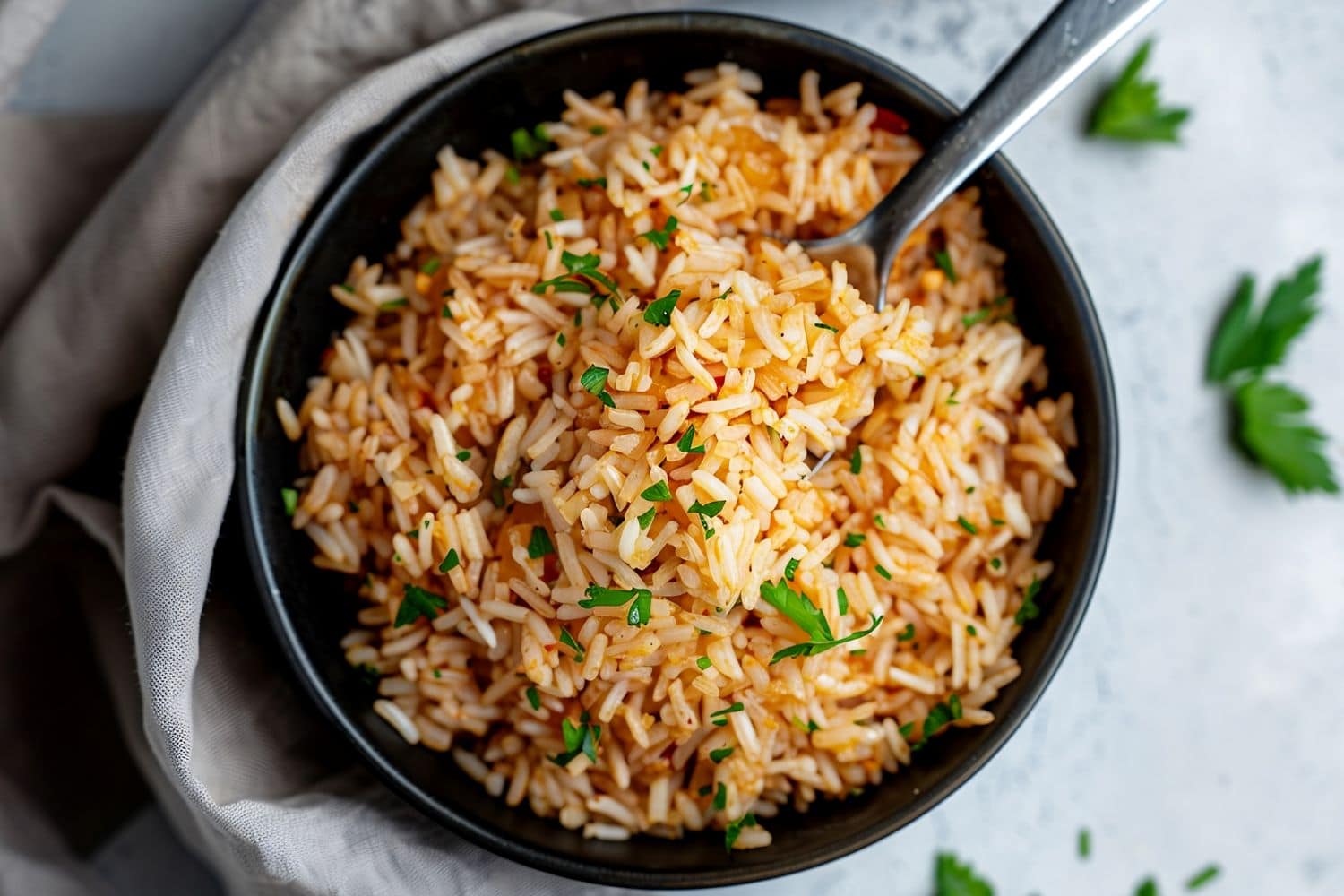
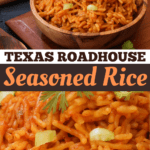
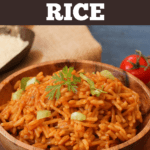
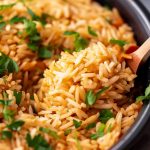
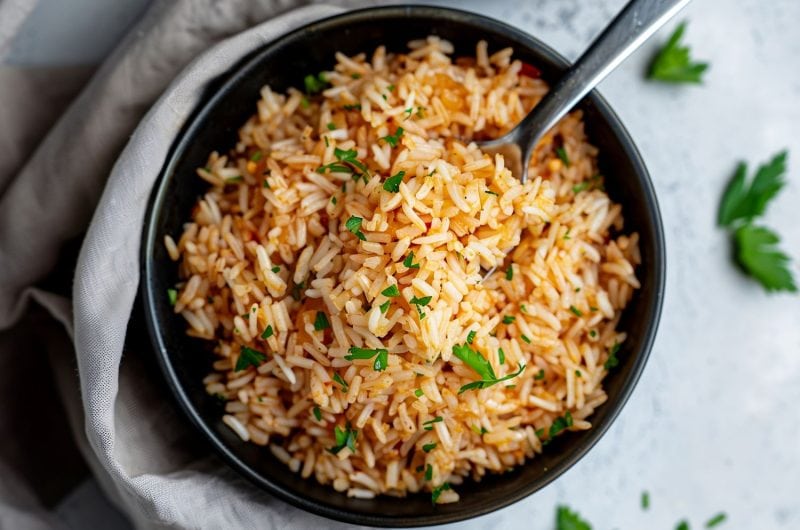
Do you have Gluten Free Recipes that you can share with us?
Hi Charles!
We don’t have any specifically gluten free recipes, but here are a few roundups with plenty to choose from:
https://beautyeval.com/vegan-gluten-free-recipes/
https://beautyeval.com/gluten-free-recipes-for-kids/
https://beautyeval.com/gluten-free-recipes/
Is the last step covered or uncovered? I assume uncovered. Thanks, smells great so far!
Hi Joanne!
Thanks for catching that 🙂
The last part – the 15-minute simmer – is covered. Then, take off the lid and fluff it with a fork
I’ve amended the recipe to include this. Thanks again!
After rice is rinsed, does it have to dry before it’s toasted?
Hi, Linda!
No, you don’t have to let the rice dry. The amount of water on the rice is relatively small and will quickly evaporate during the toasting process. 🙂